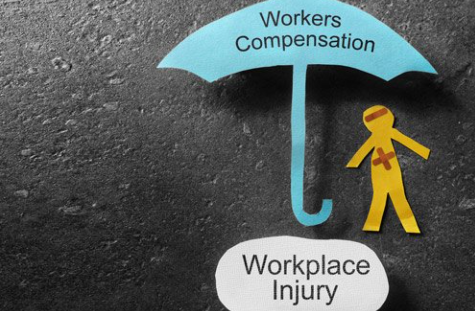AM I AN EMPLOYEE OR AN INDEPENDENT CONTRACTOR?
Admin • July 9, 2020
Workers' compensation insurance is part of the cost of being a business owner. But some employers try to avoid workers' compensation payments by claiming an employee is an independent contractor.
What is the difference between being an employee and an independent contractor? Here are some points that can clarify your situation.
Am I an Employee?
Many factors classify a worker as an employee. If you are unsure, or your employer has told you that you are under independent contractor status, ask yourself these questions:
- Does the business control the details or manner of the work I do for them?
- Can I be fired by the company?
- Am I paid either hourly or by salary by the company?
- Does the company make deductions from my paycheck for unemployment or social security?
- Do they supply any materials or tools necessary for my work?
- Am I required to work specific days or hours?
If you have answered yes to any of these questions, you may be considered an employee, and are covered by your employer's workers' compensation program.
If you are still unsure, consider if what you do falls under these categories:
- Behavioral. Does the company control the work I do or how I do it?
- Financial. Does the company have to deal with how I am paid or reimbursed expenses?
- Type of Relationship. Are there employee benefits or contracts? Is the job a key part of the business?
Am I an Independent Contractor?
Changes in the law occurred recently because of this dispute over definitions of employee and independent contractor. In April 2018, a California Supreme Court ruled against Dynamex Operations West, a company that, in 2004, changed its employees' status to independent contractors to cut costs.
To further clarify what that ruling meant for workers, in September 2019, the governor signed Assembly Bill 5 (AB5) into law, which went into effect January 1, 2020. AB5 requires the application of the "ABC" test to see if the worker should be classified as an employee or independent contractor.
The ABC test helps both the company and the worker determine in advance their working relationship. To identify if you are an independent contractor, ask yourself these questions:
- Part A. Am I free to do the job as I see fit, instead of being told how to do it by the company, or have them oversee every step of the work?
- Part B. Have I been hired to do a job that the company normally doesn't do, such as graphic design for the website of an auto mechanic?
- Part C. Do I already have my own business, but was hired by a similar business to my own? As an example, an independent graphic designer has worked for themselves for several months. A graphic design firm hires the independent designer to help with a particular job because their specific niche fills a hole in the large company's organization.
Another test, the Borello test, has been used since 1989. It applies in addition to, or instead of, the ABC test in some situations, such as:
- An independent seller under a larger company umbrella, such as insurance agents or brokers
- Medical professionals such as physicians, dentists, or veterinarians
- Other professionals such as attorneys, architects, or accountants
- Some direct salespersons
- Certain licensed commercial fishermen
Other situations where the Borello test may apply include but are not limited to: travel agents, photographers, freelance writers, or estheticians.
California law determines the classification of the worker, not the company. You cannot be classified as an independent contractor even if:
- The company has you sign an agreement that you are an independent contractor.
- The company does not make payroll deductions or withholdings for taxes or Social Security.
- The company provides you with IRS Form 1099 instead of a W-2 at the end of the year.
These new changes are challenging and complex. Contact us at The Law Offices of Jeffery M. Greenberg to help you navigate your way through your concerns about workers' compensation and your status as an employee or an independent contractor.
If you suffer an injury at work, you should report the injury to your employer as soon as possible. Learn why the timing is important.
Construction injuries can often be serious. Learn about three ways construction workers can reduce their chances of injury on the job.
If you are injured at work, you should be aware of work capacity after a work-related injury so you can prepare yourself. Learn more.







